Ricordi may refer to:
Ricordi may refer to:
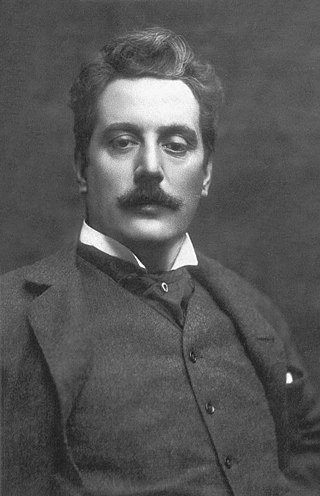
Giacomo Puccini was an Italian composer known primarily for his operas. Regarded as the greatest and most successful proponent of Italian opera after Verdi, he was descended from a long line of composers, stemming from the late-Baroque era. Though his early work was firmly rooted in traditional late-19th-century Romantic Italian opera, he later developed his work in the realistic verismo style, of which he became one of the leading exponents.

Universal Music Publishing Group (UMPG) is a global music publishing company and is part of the Universal Music Group. Universal Music Publishing has been ranked the #1 music publisher in market share by Billboard for multiple consecutive quarters.

Francesco "Franco" Battiato was an Italian musician, singer, composer, filmmaker and, under the pseudonym Süphan Barzani, also a painter. Battiato's songs contain esoteric, philosophical and religious themes, and have spanned genres such as experimental pop, electronic music, progressive rock, opera, symphonic music, movie soundtrack, oratorio and new wave.
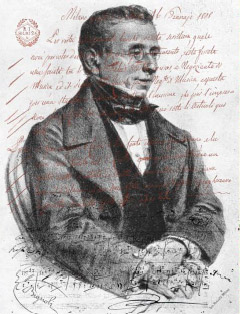
Casa Ricordi is a publisher of primarily classical music and opera. Its classical repertoire represents one of the important sources in the world through its publishing of the work of the major 19th-century Italian composers such as Gioachino Rossini, Gaetano Donizetti, Vincenzo Bellini, Giuseppe Verdi, and, later in the century, Giacomo Puccini, composers with whom one or another of the Ricordi family came into close contact.

"Suona la tromba" or Inno popolare is a secular hymn composed by Giuseppe Verdi in 1848 to a text by the Italian poet and patriot Goffredo Mameli. The work's title comes from the opening line of Mameli's poem. It has sometimes been referred to as "Grido di guerra".

Giulio Ricordi was an Italian editor and musician who joined the family firm, the Casa Ricordi music publishing house, in 1863, then run by his father, Tito, the son of the company's founder Giovanni Ricordi. Upon his father's death in 1888, Giulio became the head of the company until his death.
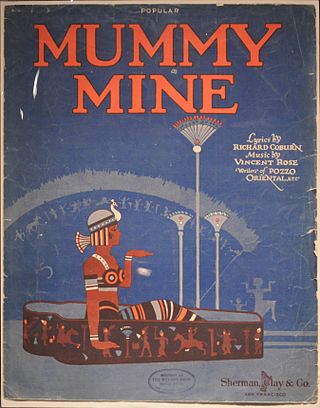
Vincent Rose(néVincenzo Cacioppo; 13 June 1880 Palermo, Italy – 20 May 1944 Rockville Centre, New York) was an Italian-born American violinist, pianist, composer, and bandleader.

Ornella Vanoni is an Italian singer. She is one of the longest-standing Italian artists, having started performing in 1956. She has released about 112 works between LP, EPs and greatest hits albums, and is considered one of the most popular interpreters of Italian pop music. During her long career she has sold over 65 million records.

Gino Paoli is an Italian singer-songwriter. He is a seminal figure who has written a number of songs widely regarded as classics in Italian popular music, including: "Il cielo in una stanza", "Che cosa c'è", "Senza fine", "Quattro amici al bar" and "Sapore di sale".
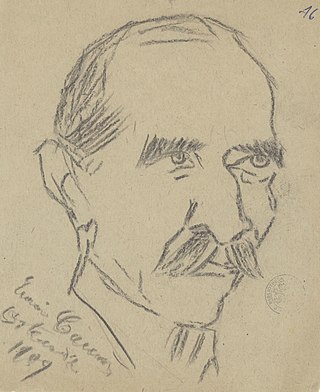
Edoardo Sonzogno was an Italian publisher.
A music publisher is a type of publisher that specializes in distributing music. Music publishers originally published sheet music. When copyright became legally protected, music publishers started to play a role in the management of the intellectual property of composers.
Roger Parker is an English musicologist who was previously Thurston Dart Professor of Music at King's College London. His work has centred on opera. Between 2006 and 2010, while Professor of Music at Gresham College, London, Parker presented four series of free public lectures, one example being "Verdi and Milan" in 2007 which is available on video.

Giovanni Ricordi was an Italian violinist and the founder of the classical music publishing company Casa Ricordi. The musicologist Philip Gossett described him as "a genius and positive force in the history of Italian opera".
Umberto Bindi was an Italian singer-songwriter. He is especially known for the popular song he co-wrote with Gino Paoli, Il Mio Mondo, which he recorded in Italian in 1963, and ''La musica è finita'' It was later performed by singers in English and other languages.
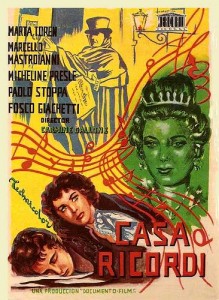
House of Ricordi is a 1954 French-Italian historical biographical melodrama film based on the early history of the Italian music publishing house Casa Ricordi. It is directed by Carmine Gallone and stars Märta Torén, Marcello Mastroianni and Micheline Presle. The Ricordi family's interactions with many of the great composers of the nineteenth century are portrayed. The film's sets were designed by Mario Chiari. It was shot at the Cinecittà Studios and on location in Milan, Paris and Rome.

"Vaga luna, che inargenti" is an arietta composed by Vincenzo Bellini to an anonymous Italian text and dedicated to Giulietta Pezzi. It was published in 1838 by Casa Ricordi in Tre ariette inedite along with two other Bellini songs, "Il fervido desiderio" and "Dolente immagine di Fille mia". It was also amongst the fifteen Bellini songs published by Ricordi under the title Composizioni da Camera in 1935, the centenary of the composer's death. Composed in the bel canto style, it is a frequent recital piece, and has often been recorded. Its original key is in A-flat major with a tempo of andante cantabile.

Dischi Ricordi was an Italian record company founded on October 1, 1959 by Nanni Ricordi and Franco Crepax, active from 1958 to 1994.

Casa degli Omenoni is a historic palace of Milan, northern Italy, located in the eponymous street of Via degli Omenoni. It was designed by sculptor Leone Leoni for himself; he both lived and worked there. It owes its name to the eight atlantes decorating its facade, termed "omenoni", which were sculpted by Antonio Abondio, most probably on a design by Leoni. Lions are a recurring theme of its decorations; in particular, a large relief placed under the cornice depicts two lions tearing a satyr into pieces. The overall style of the palace and the decorations have been noted to include several references to the art of Michelangelo. The internal courtyard, modified in 1929 by Piero Portaluppi, has a colonnade with metopes and triglyphs.

"Ricordi" is a song by the Italian band Finley, from their studio album, Adrenalina 2.
A critical edition of an opera has been defined by American musicologist Philip Gossett as "an edition that bases itself wherever possible on the very finest and most accurate sources for an opera. That means that it must study the entire performance history of a work."